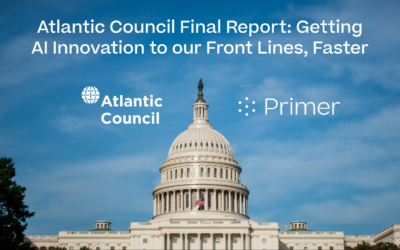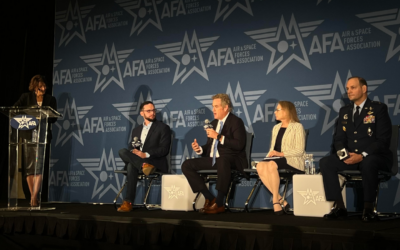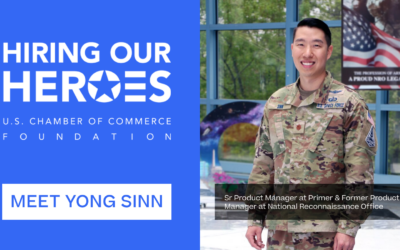AI can free us to be more human by automating daily tasks, especially in a world of information overload. Watch “Becoming Human: Are We Still Relevant in the Age of Artificial Intelligence?”
Instead of worrying that AI will take over your job, you might consider how AI can help you do your job even better. This video shows how natural language processing (NLP) can save you countless hours analyzing endless data streams so you can spend your time being more creative in solving problems that keep you (and your boss) up at night.
“Becoming Human,” a docuseries produced by Channel News Asia (CNA), an English-language news channel based in Singapore that reaches 29 territories across Asia and Australia, explores the impact of artificial intelligence on humanity. It features Primer in a new episode about the future of employment titled “Are We Still Relevant in the Age of Artificial Intelligence?”
Filmed at Primer’s HQ in downtown San Francisco, CNA depicts a “day in the life” of an information analyst. It shows how Primer’s NLP technology makes it faster and easier to sift through hundreds of thousands of data sources, summarize key points, and create reports for decision-makers who need timely, reliable insights.
The insights in these reports help people on the front lines make better decisions in high-stakes, fast-changing environments. These are the people responsible for monitoring global events in real time, identifying disinformation campaigns, anticipating supply chain or climate change effects, mitigating risks to brand reputation, managing customer services, responding to physical, financial, and cyber security threats, or allocating life-saving resources in the face of natural disasters.
Primer helps people address some of the world’s hardest problems by automating the analysis of massive amounts of unstructured data with greater speed, ease, and accuracy. Our technology transforms information overload into mission-critical intelligence so that you can drive smarter decisions and better outcomes.
A day in the life
CNA interviewed several Primer executives to get a better understanding of the challenges analysts face daily in their jobs, and also the opportunities AI presents.
According to Brian Raymond, Primer’s VP of Government and a former CIA intelligence officer, two things matter to the job of an analyst: how comprehensive you are and if you are timely with your report. “If you’re not on time, you’re irrelevant,” Raymond added. However, no matter how many human analysts an organization hires, the rate at which data is growing exponentially makes it impossible to meet either of these goals, let alone both of them. This is where AI comes in – to aid the analyst in comprehensively summarizing the key points on time.
How difficult is this level of analysis, really? CNA sat down with Primer to learn more.
In a fun but telling experiment, Primer’s Director of Science, John Bohannon, challenged CNA’s reporter to analyze a typical five-page news article and write an intelligence report highlighting the critical “five Ws” (who, what, where, why, and when), just as an analyst would. This “everyday” task took her approximately 30 minutes. For comparison, Primer’s NLP technology analyzed the same article and created a report within seconds. Not only did Primer’s AI tool make it much faster to summarize the key points, but it also expanded the type of information pulled – Primer’s NLP also extracted different pieces of information than CNA did, highlighting the complementary relationship between humans and machines in providing valuable insight at scale.
CEO’s perspective
CNA also captured Primer CEO Sean Gourley’s perspective on the budding relationship between AI and human intelligence.
“Up until now, the only intelligence in the world that could read and write were humans,” Gourley said. “Now, we have another kind of intelligence: machines. Machines that can read and write for certain tasks just as well as humans but can do it a lot faster, with far less expense, and at a scale humans can barely imagine.”
The episode concludes with Gourley’s advice to anyone who remains skeptical about the productive nature of the relationship between humans and AI.
“AI isn’t going away. It’s got a distinct set of capabilities that are different from human intelligence, and it can do things that we humans can’t and that we’ll never be able to do because of the way we are wired biologically. Let machines be machines and humans be humans, but let’s work together to create a better kind of intelligence.”
Watch the full episode of “Becoming Human @ Work.”
Contact Primer here for more information about Primer and access product demos.



